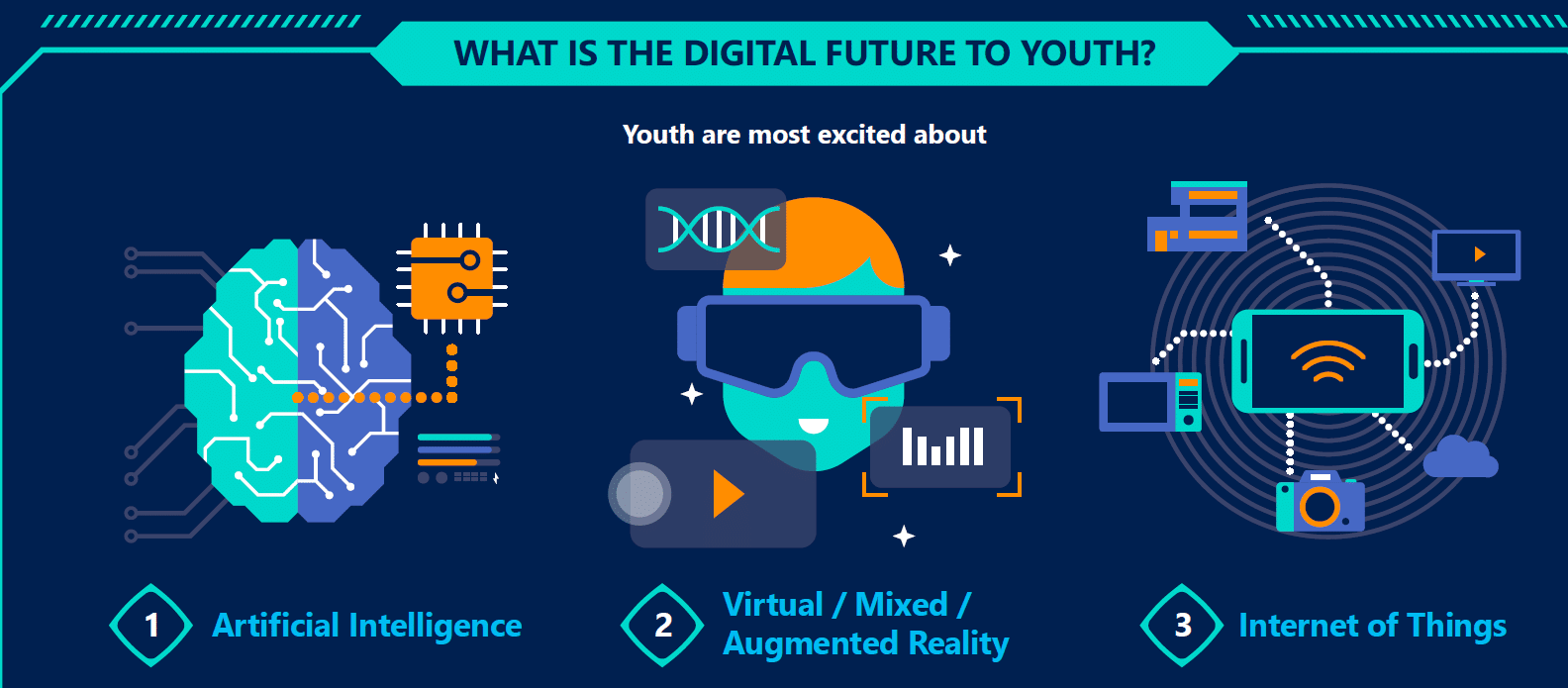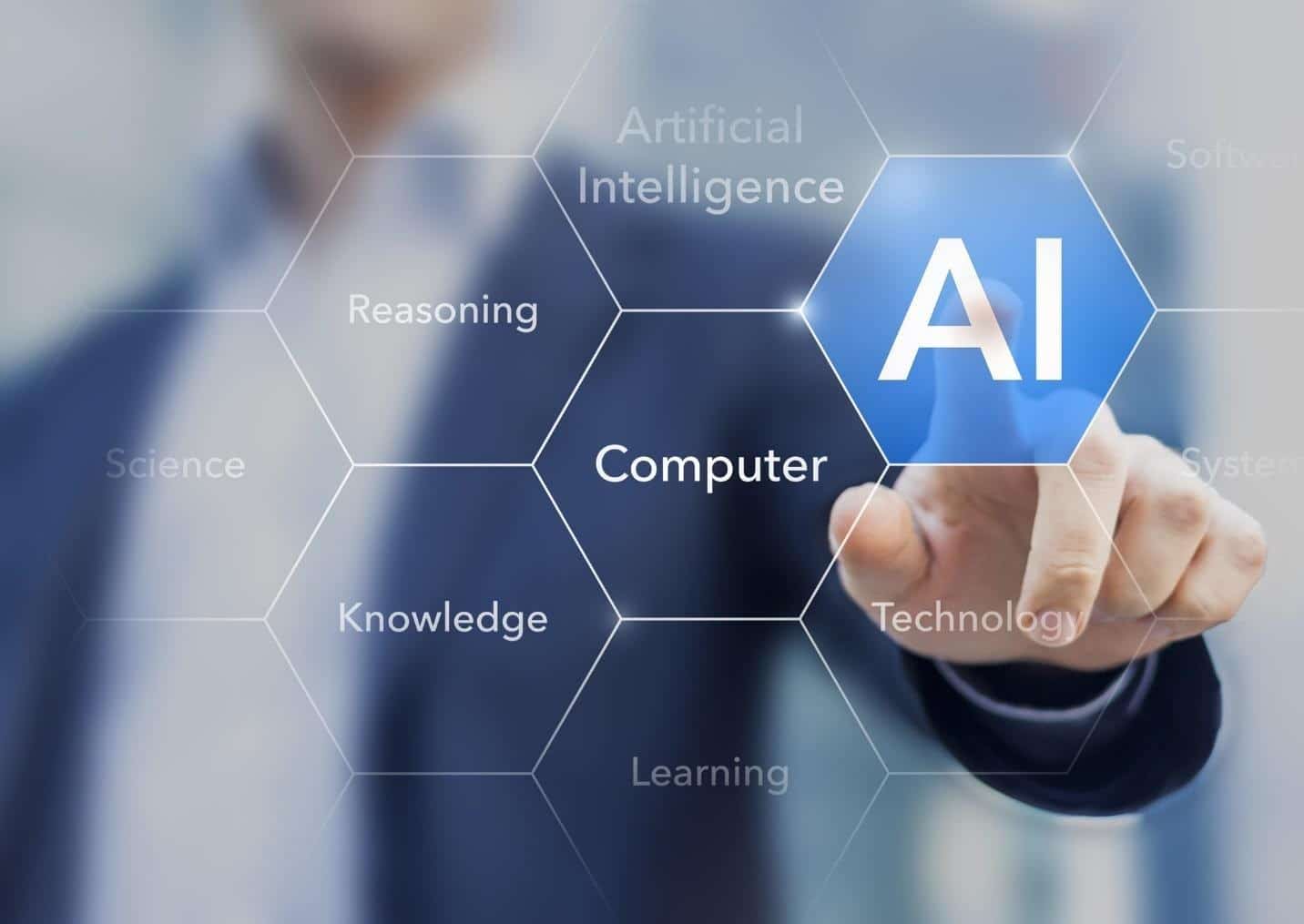We are talking about using AI in solutions that help us manage business processes. Most applications and processes can be reinvented with AI, by adopting completely new approaches to the horizontal and vertical processes of the organization, managing to elevate, maximize and bring new capabilities to our human ingenuity.
How do we apply AI to transform and manage the business processes we have in our organizations differently?
Artificial intelligence (AI) is changing the way we produce, consume, market and work. Even though there is still too much mysticism and lack of knowledge around its application. We may see this new era as something abstract, without really knowing the applications that can be made in the industry.
However, we are talking about amplifying human ingenuity to increase capacities and help achieve even greater production.
We are right at the point of the growth curve before it goes vertical. Now is the time for companies to act on AI, or run the risk of falling behind and losing competitive advantage. Companies that adopt new technologies are the ones that will get the most growth opportunities, after all, progress never happens without the courage to experiment.
It should be noted that the emergence of AI and other associated technologies is becoming a massive movement. Rapid technological adoption requires dynamic companies that can absorb the technologies associated with AI and, above all, a workforce with skills, capabilities and knowledge compatible and complementary to these technologies.
The role of development companies in this revolution.
Part of the responsibility of these companies is to start asking the right questions and become absorbed by the data, which requires a complete understanding of the technologies involved.
The role of data in this revolution.
Data is the DNA behind the powerful analysis and information that are helping modern organizations identify new products, as well as determine how to better serve customers and improve operational efficiency. If the data is inaccurate or damaged, the machine will not produce viable information. That is why having a strong and diverse culture built around the production and acquisition of data is crucial to success.
The role of the artificial intelligence leader in this revolution.
Soft skills such as leadership and qualities such as empathy are becoming the most important factors in the successful implementation of artificial intelligence technologies. We are talking about a deeply human science. We know that technologies are developed by people and, even as machine learning and deep learning systems train themselves, they will all require supervision and molding by a human hand, an effort that is becoming the most important part of the strategy and deployment within organizations today.
The AI that every company applies to its product is only as good as the way it is trained and how it is tested to ensure that it is behaving as expected.
The leadership of the AI era is rooted in humility and curiosity, as well as in the willingness to accept data-based decision making.
The machines will make us more human. Sounds bold to say. But we already live in a world where the best possible results in many jobs can only be achieved with the help of an algorithm, a collaboration that will only deepen in the coming years.
The dynamics of the man-machine relationship is not just about how AI will influence workers, but how workers will influence AI.
The role of IOT in this revolution.
There is a great opportunity to take advantage of artificial intelligence (AI) through the Internet of Things (IoT). If you already have the possibility of having a project that captures IoT data, the next step is to analyze the data so that AI can do much more for your business.
It is not only about technological trends, but also about digital transformation and the evolution of businesses to change the world, from small fields to large global challenges that cross all industries.

Conclusion
Digital transformation (the use of appropriate technology to empower people and organizations, and enable them to unleash their full potential), is just around the corner. The time has come to change our reactive paradigm to a proactive paradigm.



